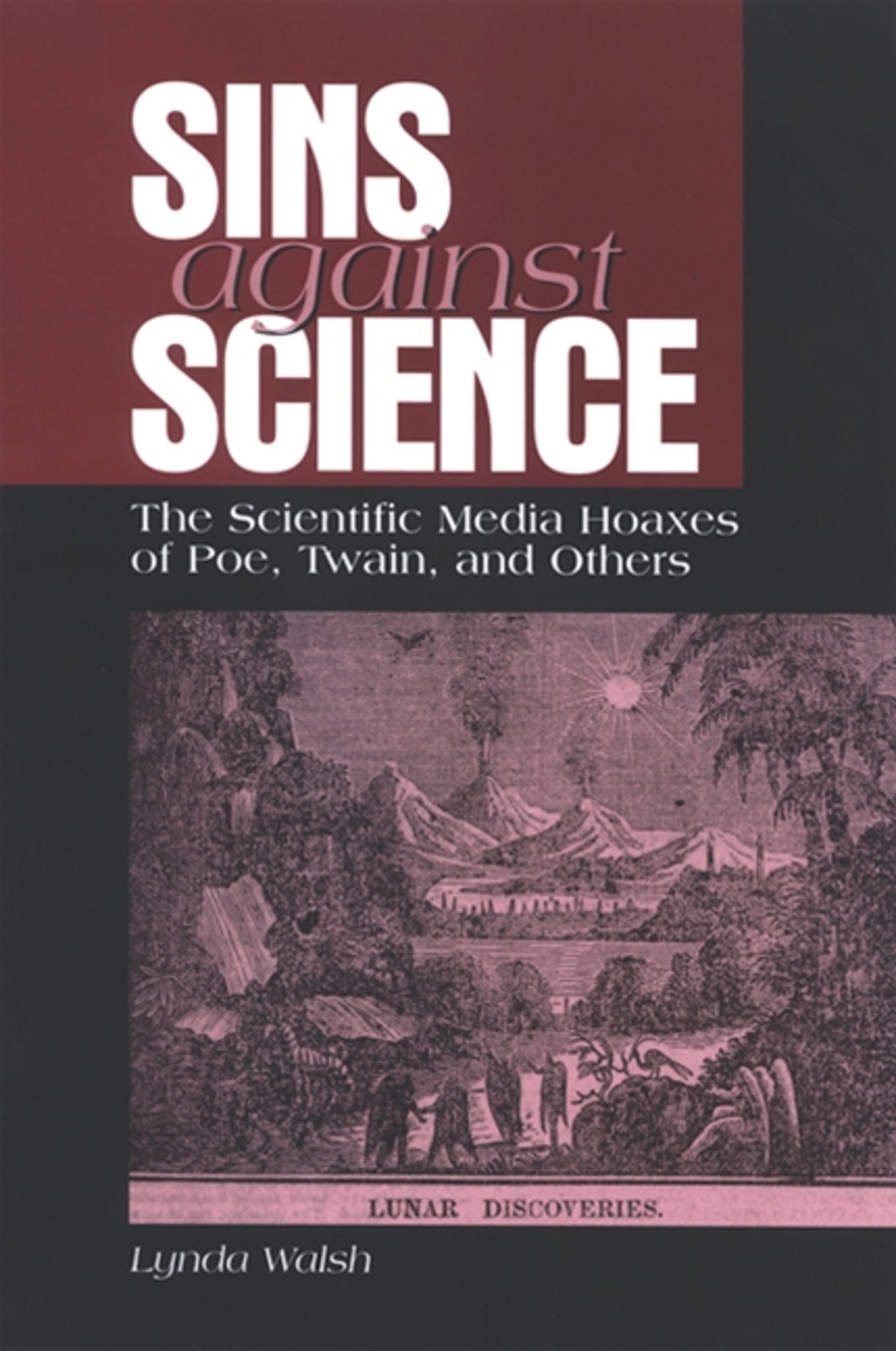We're sorry. An error has occurred
Please cancel or retry.
Sins against Science

Some error occured while loading the Quick View. Please close the Quick View and try reloading the page.
Couldn't load pickup availability
- Format:
-
14 September 2006

Recounts the fake news stories, written from 1830 to 1880, about scientific and technological discoveries, and the effect these hoaxes had on readers and their trust in science.
Lynda Walsh explores a provocative era in American history-the proliferation of fake news stories about scientific and technological discoveries from 1830 to 1880. These hoaxes, which fooled thousands of readers, offer a first-hand look at an intriguing guerilla tactic in the historical struggle between arts and sciences in America. Focusing on the hoaxes of Richard Adams Locke, Edgar Allan Poe, Mark Twain, and Dan De Quille, the author combines rhetorical hermeneutics, linguistic pragmatics, and reader-response theory to answer three primary questions: How did the hoaxes work? What were the hoaxers trying to accomplish? And-what is a hoax?


Contents
List of Illustrations
Acknowledgments
Introduction
Previous Work
Relevance of Hoaxes to Current Scholarly Concerns
Chapter Summaries
1. A Brief Natural History of Hoaxing
2. Method
Swift’s Hoax and Satires
Parody
Nineteenth-Century Fraud, Tall Tales, and Science Fiction in America
Kairos
3. Poe’s Hoaxing and the Construction of Readerships
The Search for a Method: The Traditional and Philological Genealogies of Linguistic Approaches to Literature Optimality Theory
A Brief Tutorial: Optimality Theory for Reception Studies
Overview of Poe’s Scientific and Rhetorical Acculturation
The Contest between "Hans Phaall" and Locke’s Moon Hoax: Revealing Reader Expectations
Collecting Reader Expectations
The Balloon-Hoax
The Facts in the Case of M. Valdemar
Von Kempelen and His Discovery
Solutions to Problems in Poe Scholarship
Poe’s Relationship to Science and to His Readership: How the Hoaxes Interact with Eureka
4. Mark Twain and the Social Mechanics of Laughter
Rhetorical Acculturation
Scientific Acculturation
The Petrified Man
Adjusting the Filter of Expectations to Account for Twain’s Hoaxing
Applying the Analysis to Problems in Twain Scholarship
Relationship of the Hoax to Twain’s Scientific Thinking
The Social Mechanics of Laughter
5. The Hoaxes of Dan De Quille: Building and Defending the West
Rhetorical Acculturation
Scientific Acculturation
De Quille’s Hoaxes
Summary of Reading Expectations Based on De Quille’s Hoaxes
De Quille’s Hoaxes Build and Defend His Ideal West
6. The Mechanics of Hoaxing
Conclusion
How Did the Hoaxes Work?
The Hoax as a Machine
Conclusion: The Sokal Hoax
Exploiting the Conventions of the Cultural Studies Article
Sokal’s Hoax Constructs Him as a Notorious Expert
The Hoax as a Computer Virus
Appendix A: How to Read Tables in Optimality Theory (OT)
Appendix B
What the Parts of the Table Mean
The Results of the Syllabification of /Anset/
Optimality Theory Applied to a Decision about a Hoax’s Truth-Value
Notes
Glossary
Bibliography
Index



